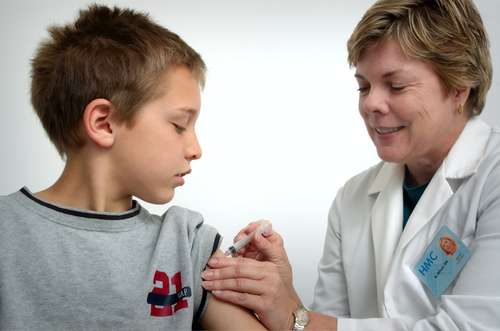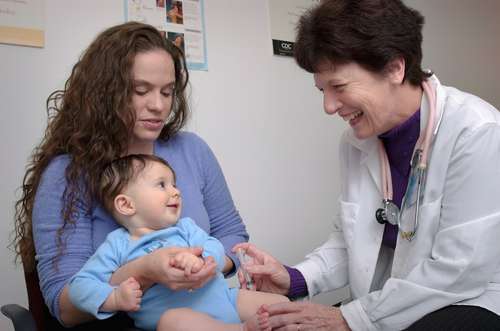Males Who Skip Prostate Screenings Could Face 45% Higher Risk of Death
The risks associated with skipping prostate cancer screenings are more alarming than many realize. Skipping a crucial preventive step could mean facing up to a 45% higher risk of death. This isn’t just another statistic; it’s a wake-up call for every male out there who may be putting off this simple yet potentially lifesaving test.
It all boils down to awareness and proactive care. There's a common misconception among many males: if you feel fine, you probably don't need to see a doctor. But when it comes to prostate cancer, appearances can be deceiving. Regular screenings like PSA testing aren’t just check-up boxes in your routine; they are vital moments that potentially save lives.
Understanding the Risk
Understanding the implications of skipping prostate screenings is the first step to taking charge of your health. Recent research in Europe has shown a startling increase in the risk of death among males who dodge prostate cancer screenings. Regular testing is key to early detection.
The statistics are hard to ignore. A 45% higher risk is not a number to take lightly. Men who neglect to get PSA testing may unknowingly be inviting an unseen enemy into their lives. Early detection has proven to be crucial because it means treating a condition when it's still manageable. Think of it as a preventive measure, much like regular car maintenance prevents a breakdown on the highway.
It’s interesting to note that many men fear a diagnosis like a rainy day waiting to ruin a picnic. However, postponing screening is like ignoring a check-engine light in your car. Eventually, the problem escalates, and by the time it's severe, the solutions become more complicated and less effective. And while some might argue about the downsides of over-diagnosis, the truth remains: early intervention saves lives.
Why Screening Matters
Screening for prostate cancer serves as the cornerstone of men's health. It’s not just a routine test; it’s a preventive measure that can catch cancer in its infancy. Many males assume that if they don’t feel symptoms, they’re good to go—but that’s a dangerous assumption.
When you get regular PSA testing, you’re essentially staying one step ahead of a potentially deadly disease. Regular screenings ensure that any abnormality with the prostate gland is picked up early. This is especially important since early-stage prostate cancer might not show noticeable symptoms. I’ve seen stories of men who felt perfectly fine, only to discover a significant issue during their routine check-up.
Beyond just the physical benefits, there’s an emotional relief in knowing you’ve done your part to safeguard your future. Knowing that you’re actively participating in your own health can boost your confidence and overall outlook on life. It reminds you that prevention is always better than cure.
Barriers to Screening
There are several reasons why many males avoid getting their prostate screened. One major barrier is a lack of awareness about the benefits of early detection. Some men simply don’t see the need because the idea of cancer screening sounds scary or invasive. Others might worry about the financial implications or the logistical hassle of scheduling and attending appointments.
There’s also an element of fear at play. Facing the possibility of a cancer diagnosis can be paralyzing, much like standing at the edge of a diving board. Many avoid the plunge, hoping that everything will be fine without taking a proactive step. It’s important to understand, though, that the inconvenience or temporary discomfort of a screening pales in comparison to the potential consequences of undiagnosed prostate cancer.
This fear can sometimes be exacerbated by misinformation or false assurances from friends and family. When you hear a friend say, 'I skipped my screening and I’m fine,' it can reinforce the idea that screenings aren’t necessary. But what if that friend isn’t speaking for everyone? The reality is different for each individual, and making an informed decision is the key to protecting your health.
Steps to a Preventive Future
If you’re ready to take control of your men's health, there are a few steps you can consider. Preventive care isn't just about screenings for prostate cancer; it’s about a holistic approach to overall well-being.
For starters, get informed. Look up reliable resources such as research articles and expert opinions from trusted sources on men's health. Schedule your PSA testing and keep regular check-ups. Remember, the sooner you detect an issue, the better your chances are of effective treatment.
You might also want to incorporate habits like kegel exercises for men into your routine. Male kegel exercises can help in maintaining not only urinary health but also contribute to overall core strength, which in turn supports your prostate gland. Including these practices might seem minor, but over time they add up to a significant impact on your overall health.
In the world of men's health, small steps such as these are just as important as taking proactive measures like screening. Similar to choosing top multivitamins for men to support your daily nutritional needs, PSA testing becomes an essential supplement to a healthy lifestyle. Each piece plays a part in ensuring you live a long and fulfilling life.
Do you ever wonder what it would be like if every check-up could guard you against a formidable threat like prostate cancer? It’s not just a hypothetical scenario—it’s a reality for many who take preventive measures. By making these small adjustments today, you're making a giant leap towards a healthier tomorrow.
Besides regular health check-ups, forming a relationship with your healthcare provider can pave the way for more open conversations about any concerns you might have. This bond can lead to better-tailored screening schedules and wellness advice that fits your unique needs. Being proactive and communicative really can transform how you experience men's health care.
The Bigger Picture
When viewed collectively, the conversation around prostate screenings transcends individual fear and touches on public health as a whole. We’re not just discussing one test—this is about branding a culture of preventive care. By skipping screenings, many males inadvertently contribute to a larger health crisis.
It’s similar to the idea that one missing link can weaken an entire chain. When a significant number of males deviate from regular health checks, the overall community becomes more vulnerable. Publications like mens health mag often underscore the importance of early screenings, reminding us that timely preventive measures lead to better outcomes.
This isn’t a battle fought individually. Governments, health organizations, and communities need to come together to create environments that support routine screenings and health education. The statistics may sound grim, but they also represent hope—hope that increasing awareness will lead to improved practices and ultimately save more lives.
So, next time you think about skipping a screening appointment, remember that a small appointment today could prevent a major crisis tomorrow. Reflect on the fact that good health is an ongoing project that needs patience, commitment, and sometimes a bit of bravery.
In the end, every simple appointment folds into a larger narrative of self-care and prevention. The steps we take today might just be the ones that secure our future.
Overall, the message is clear: regular screening and preventive care for prostate cancer are crucial. It’s about taking control of your present in order to safeguard your future. By understanding and acting on the warning signs, we can lower the risks and lead longer, healthier lives. So, consider this a friendly nudge—don’t let fear or misinformation keep you from a crucial health check!




